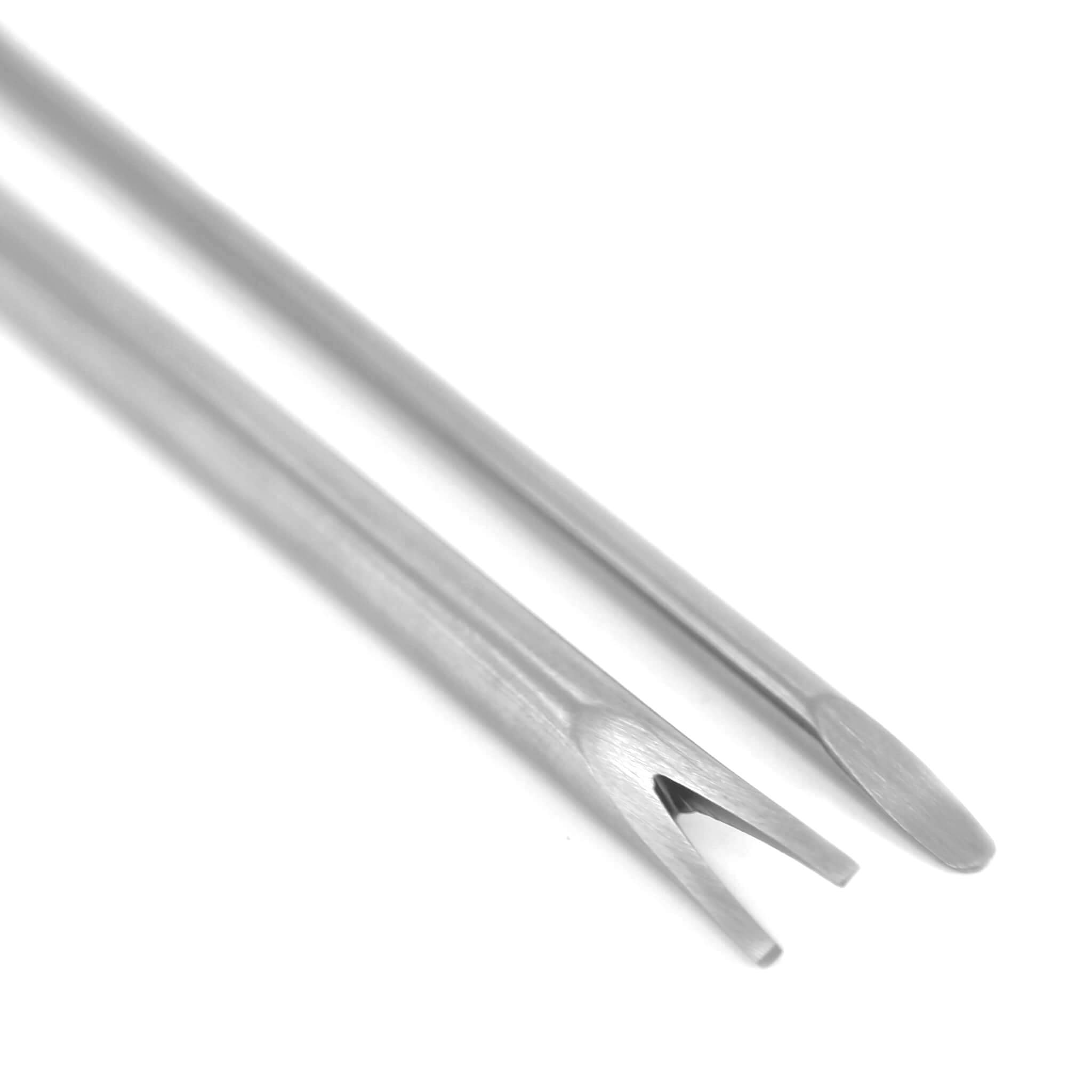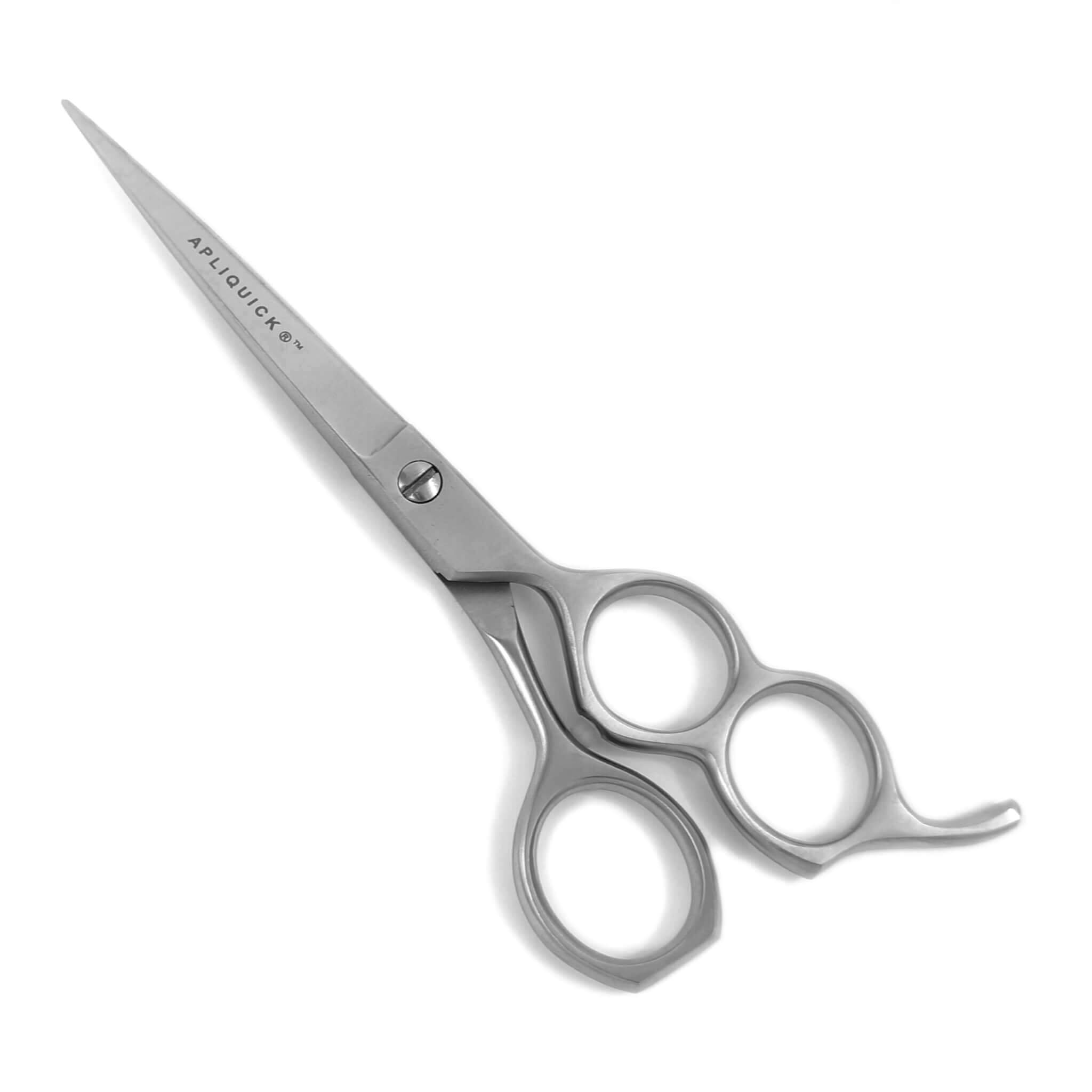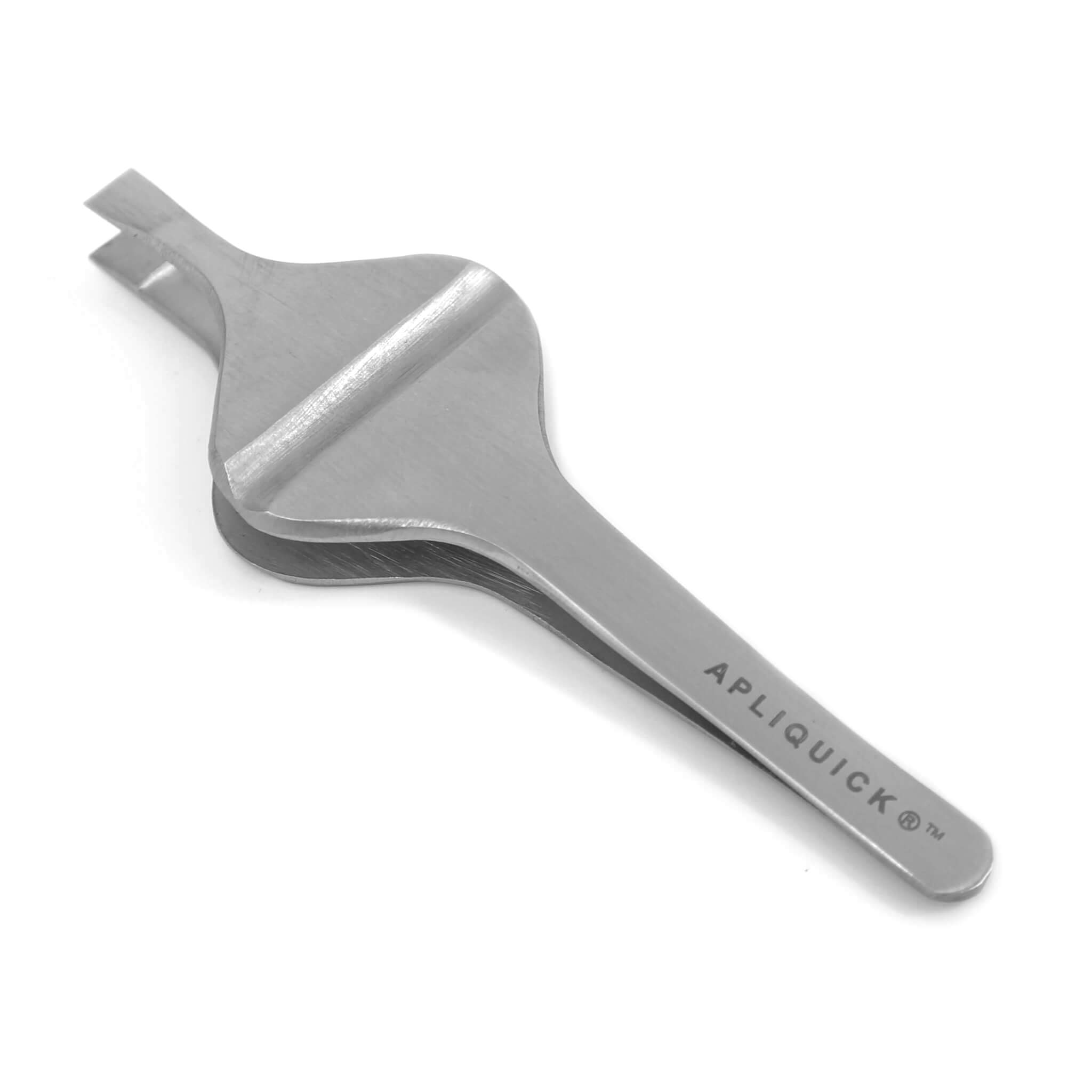 18
18
This week, as we continue our study of color, we look at the triad color plan. The triad color plan is very pleasing to the viewer and as such are often those fabrics that grab out attention when strolling through the fabric department.Triad, meaning three, is composed of three colors, that at first glance seem to be selected at random, however that is not the case, as they are actually equal distance from each other on the color wheel. While the colors are lower in high contrast than the Complementary plan, creating harmony in your quilt is easier to achieve.
Within the Triad color plan there are eight possible combinations on the Essential Color Wheel:

Yellow, Cyan/Turquoise, Magenta
Chartreuse, Cerulean Blue, Blue-Red
Yellow-Green, Blue, Red
Spring Green, Blue-Violet, Orange-Red
Green, Violet, Orange
Blue-Green, Red-Violet, Yellow-Orange
Aqua-Green, Purple, Orange-Yellow
Aqua-Blue, Fuchsia, Golden-Yellow

Of the eight plans, the most often used, and the group that offers the widest range of colors is the Primary Triad Plan (Yellow, Cyan, Magenta). By mixing any combination of these three colors, one can create all of the 24 colors on the wheel. The Secondary Traid Plan (Green, Violet, Orange), while not used as often, they too can be used to create quilts with stunning results. To achieve the best resuilts, it is best when you blend each of the colors with its partner.
As with other plans, everyone can't be the star, so to avoid things becoming too tense between the three colors, it is best to select a "lead actor" with two "supporting actors". One easy way to remember this when selecting fabrics for your work is to use the 60-30-10 rule. Sixty percent should be your lead color, thirty percent, the supporting color, and the remaining ten percent acts as an accent.
For example, on our Essential Color Wheel, the primary color plan is made up of yellow, cerulean blue, and magenta. The lead actor in Faultlines: Markings #19 by Lisa Call is magenta, with yellow and cerelean blue playing supporting roles.

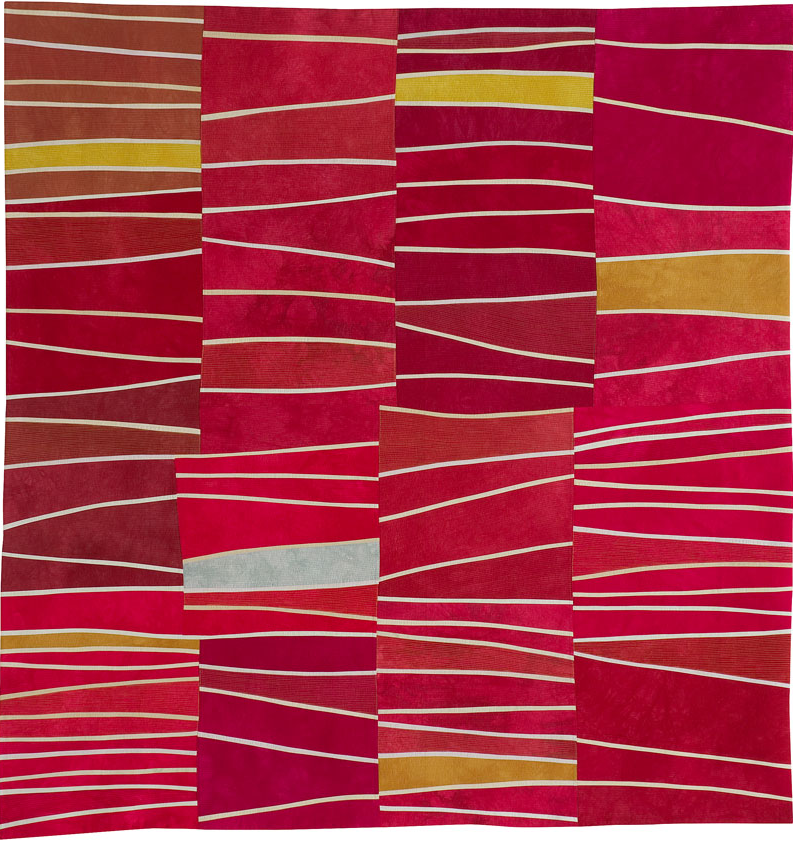
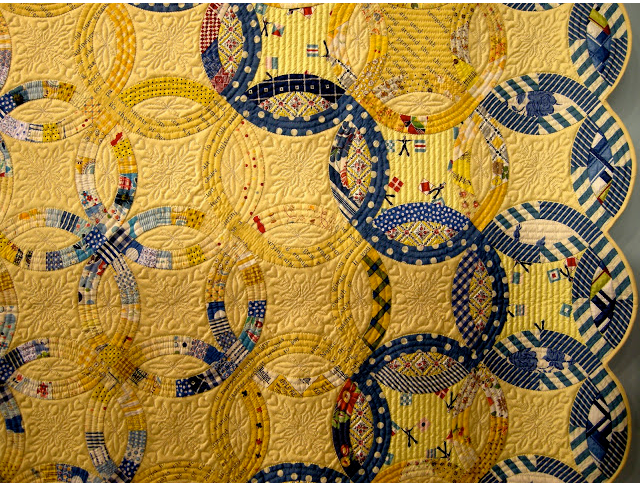
Another way to have everyone in the cast get along, is to include multi-colored fabrics that feature all three of your selected colors. Notice Taeko Iwashita's stunning use of multi print fabric to keep the viewers attention and interest in her Double Wedding Ring quilt Forever. Yellow is the obvious star, while blue and red play the supporting roles. But, other members of the cast are prints that include a blend of all three colors.
Need ideas? Let's look at some more examples of quilts using the triad color plan.
Variations on Cyan, Magenta, Yellow plans:
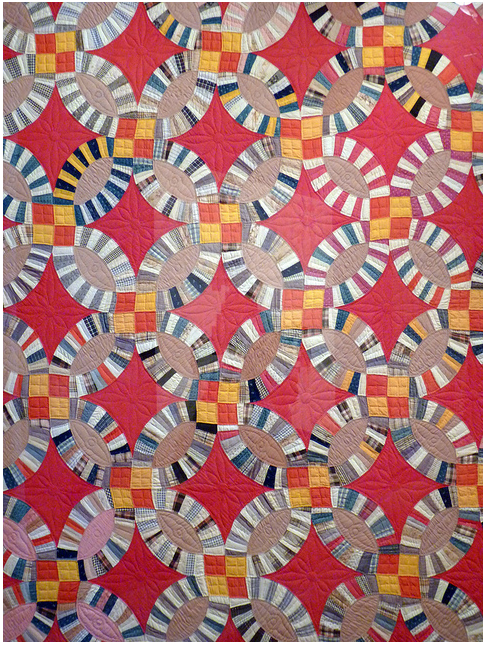
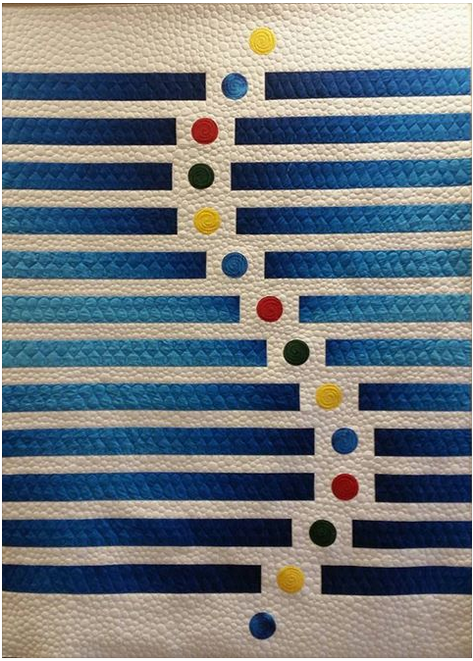
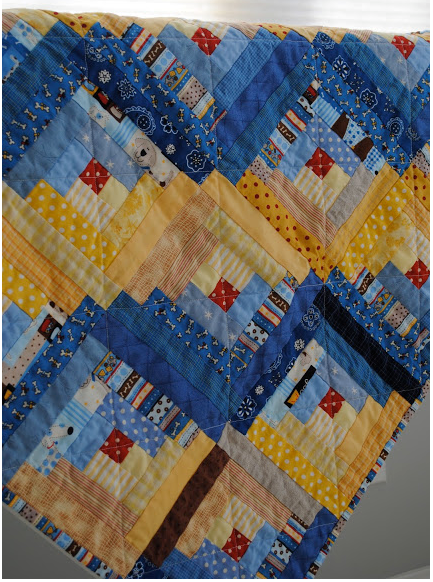
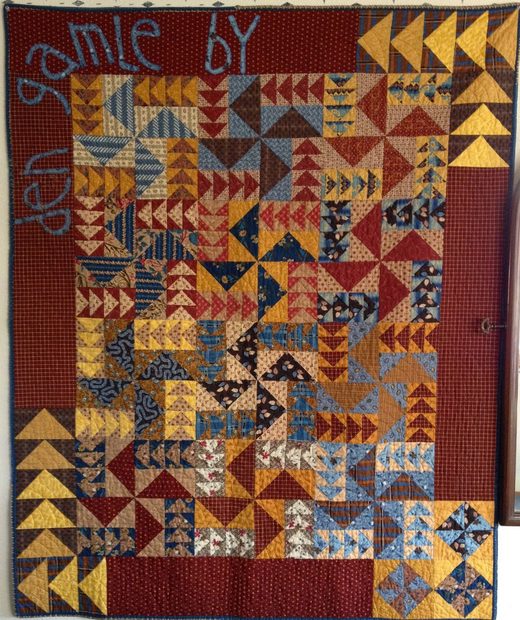
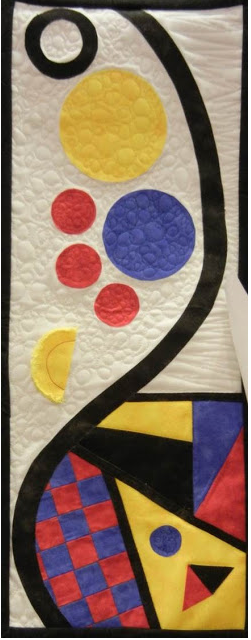
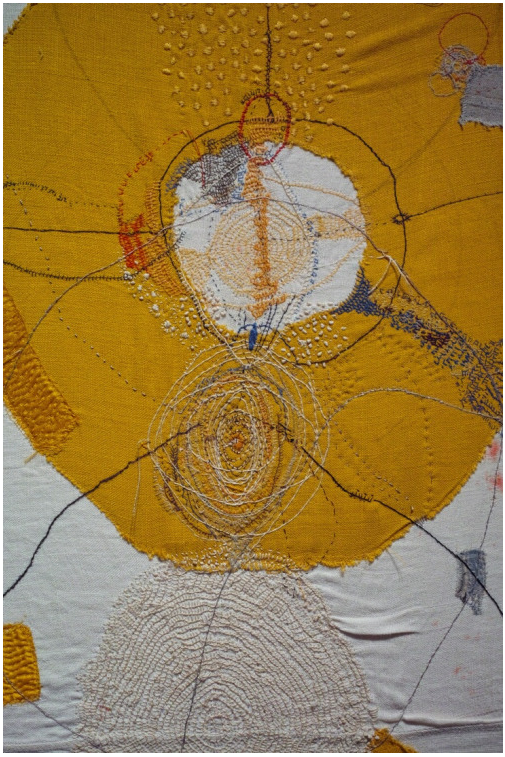
Variations on the Purple, Orange-Yellow, Aqua-Green plans:
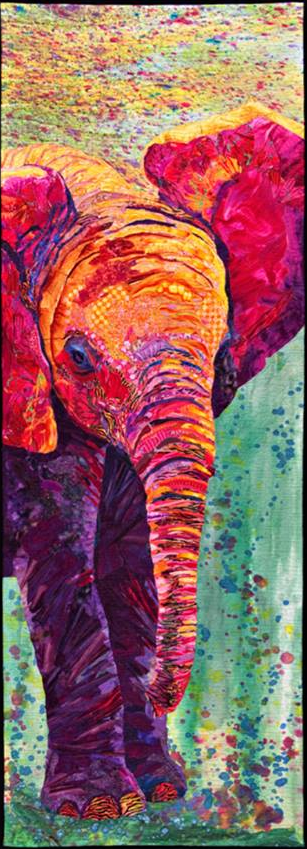
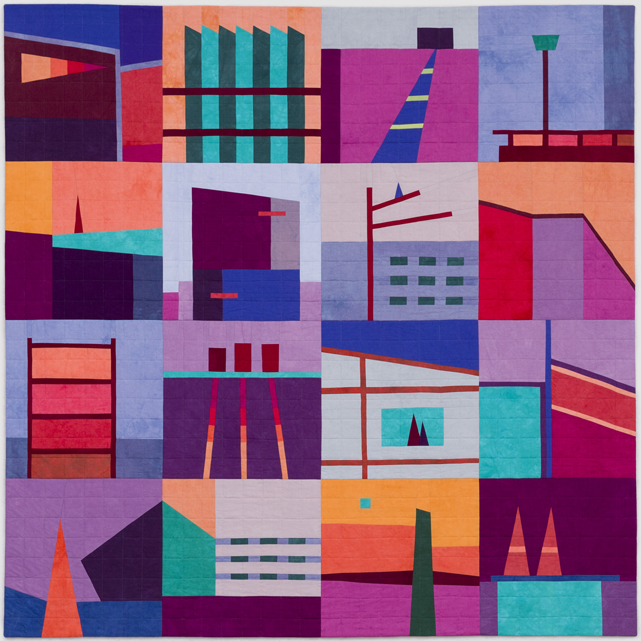
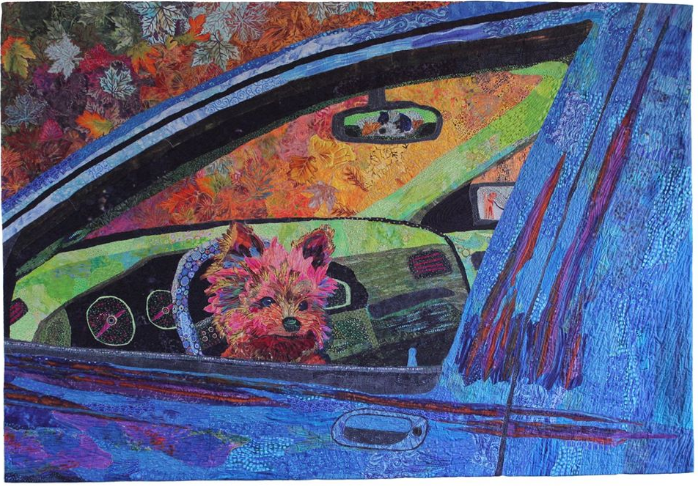
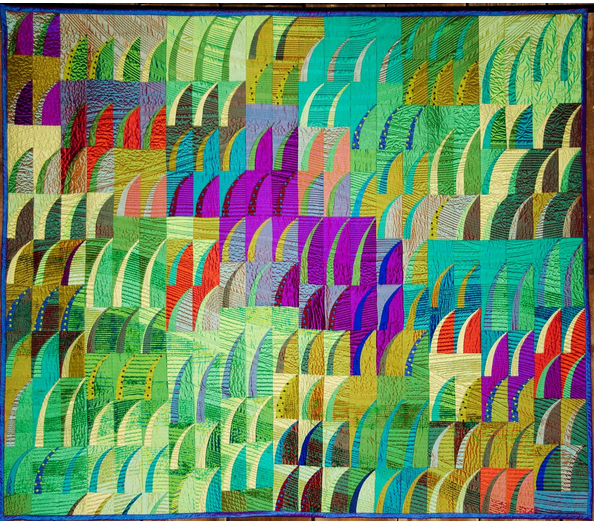

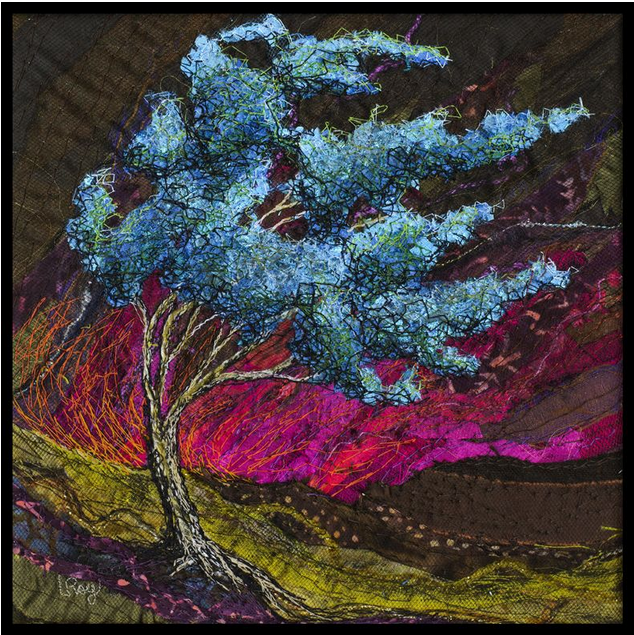
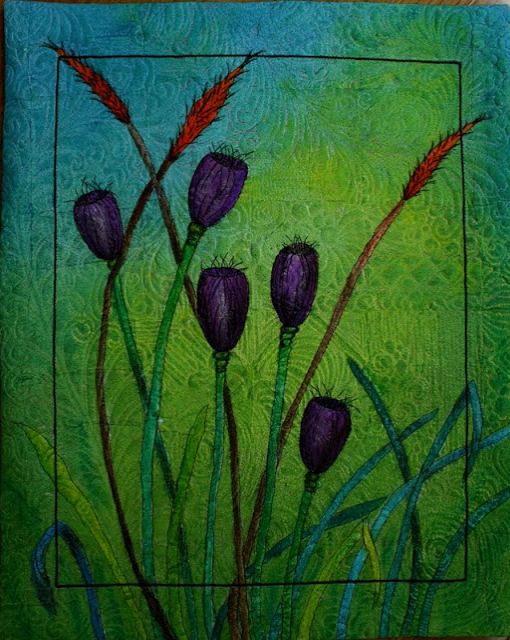
Works combining every color along the wheel:

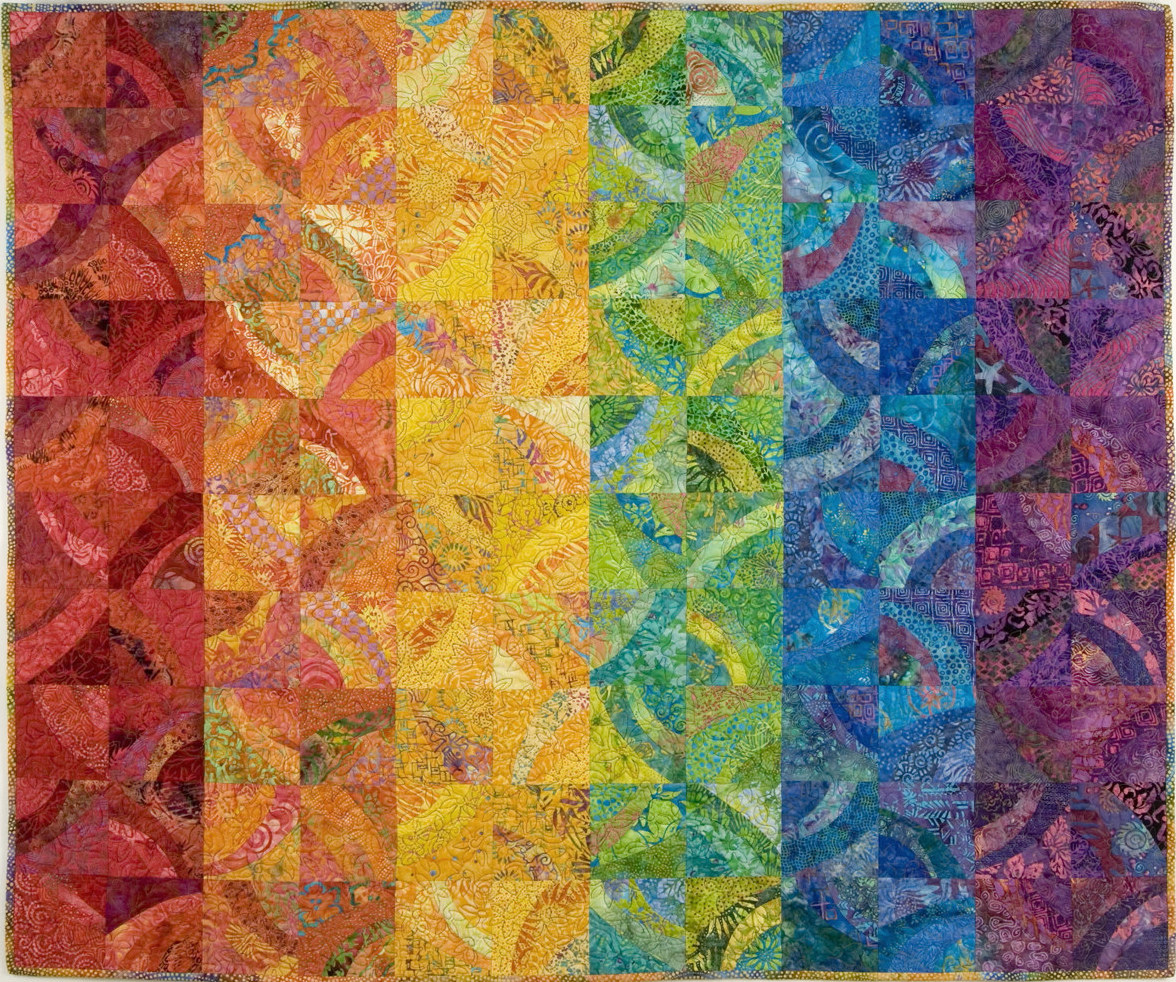
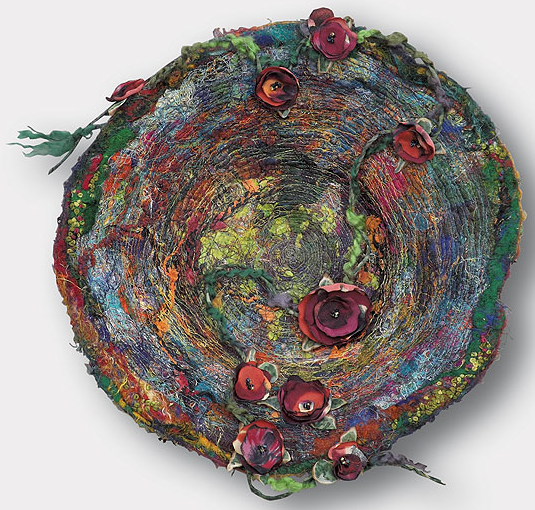
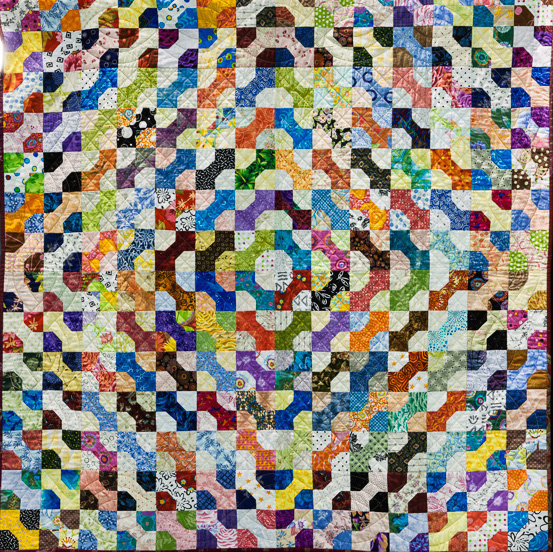
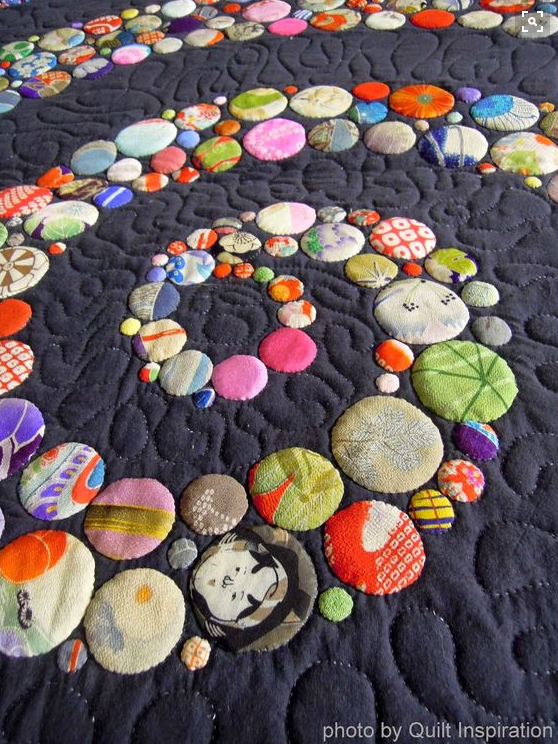
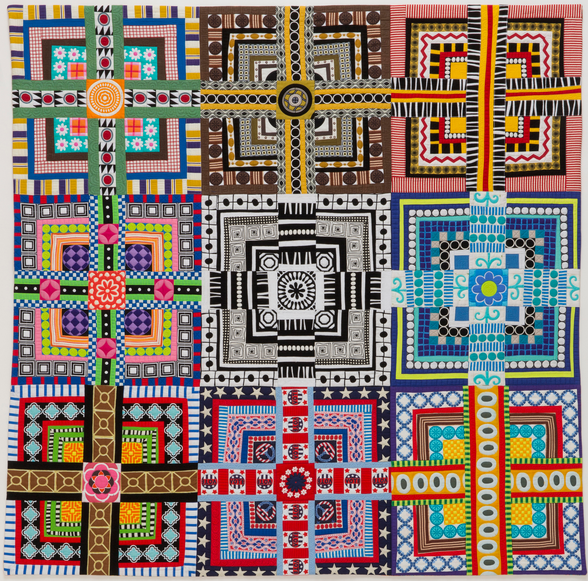
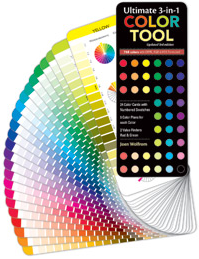
Do you still not trust your instincts? Use the Ultimate 3-in-1 Color Tool to help solve the mystery. Each of the twenty-four pages illustrates the pure color, tints, shades and tones of a family, allowing you the opportunity to select from a wide array of fabrics to make a quilt more interesting.


Triad Color Plan
by Frieda Anderson
Frieda Anderson (Show 705) is known for creating luscious hand-dyed silk quilts featuring botanical themes. Green (above) is no exception. Creating this level of eye candy for the viewer not by accident. Frieda shares her method of inspiration, which you can use as well, when it comes to designing a quilt using the Triad Color Plan.
Triad
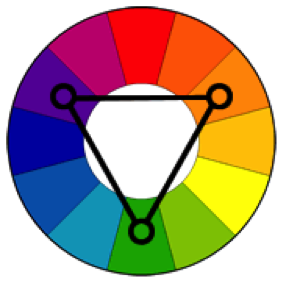 A triadic color scheme uses colors that are evenly spaced around the color wheel.
A triadic color scheme uses colors that are evenly spaced around the color wheel.
Triadic color harmonies tend to be quite vibrant, even if you use pale or unsaturated versions of your hues.
To use a triadic harmony successfully, the colors should be carefully balanced - let one color dominate and use the two others for accent.
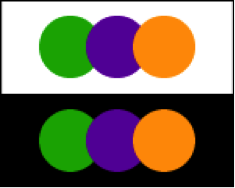
I often take pictures of things I like in nature - trees, leaves, flowers, birds, water, animals. You name it, I’ll take a picture of it if it catches my attention, particularly if the colors are interesting. I take the images as reference for quilt ideas, but also for color ideas. If you look closely, nature will give you all the color ideas that you can ever need.
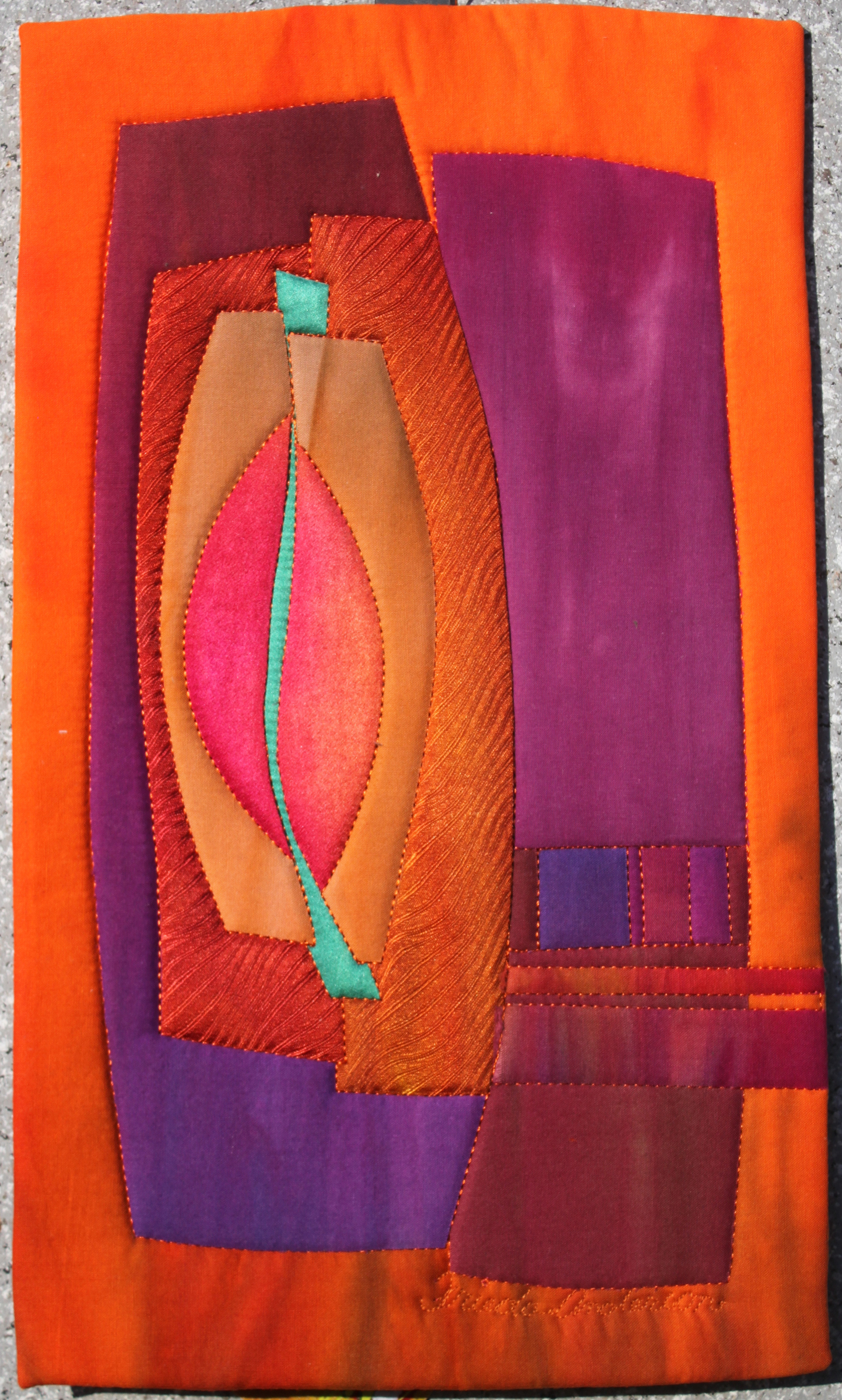
The idea for this little wall quilt came after walking in a small woods near my home in the early autumn. The leaves on the trees were turning beautiful combinations of orange and red, with stark green stems running down the center of the leaves. I came home and pulled out scraps of my hand dyed silks that were already fused and started playing around to create the center of this little leaf quilt. Once I had the center finished, I knew that I needed to really set it off with a great contrasting color. So, I got out my trusty color wheel and started looking at color combinations to see what would make my idea really sing. If you don’t already own a color wheel, they are a great addition to your quilting equipment. A color wheel will always tell you which colors are going to work well together. Since I had the center leaf motif worked out in orange and green, my color wheel told me that purple was the perfect color to set the leaf off and make my motif glow. That completed my triad color theme perfectly - orange for the leaf and border, green for the stem, and the purple accents to create drama.
This quilt is a raw edge fused creation using my hand dyed cotton and silk fabrics and fusible web to create it in what I refer to as a collage technique. I finished the quilt using a pillow case technique to complete this small 8” x 14” quilt. A stitch in the ditch around all of the design motifs in rayon thread completed the composition nicely.
You can view a pattern similar to the Orange Leaf design, Emerging Leaves, and many other quilts on my website at www.friestyle.com

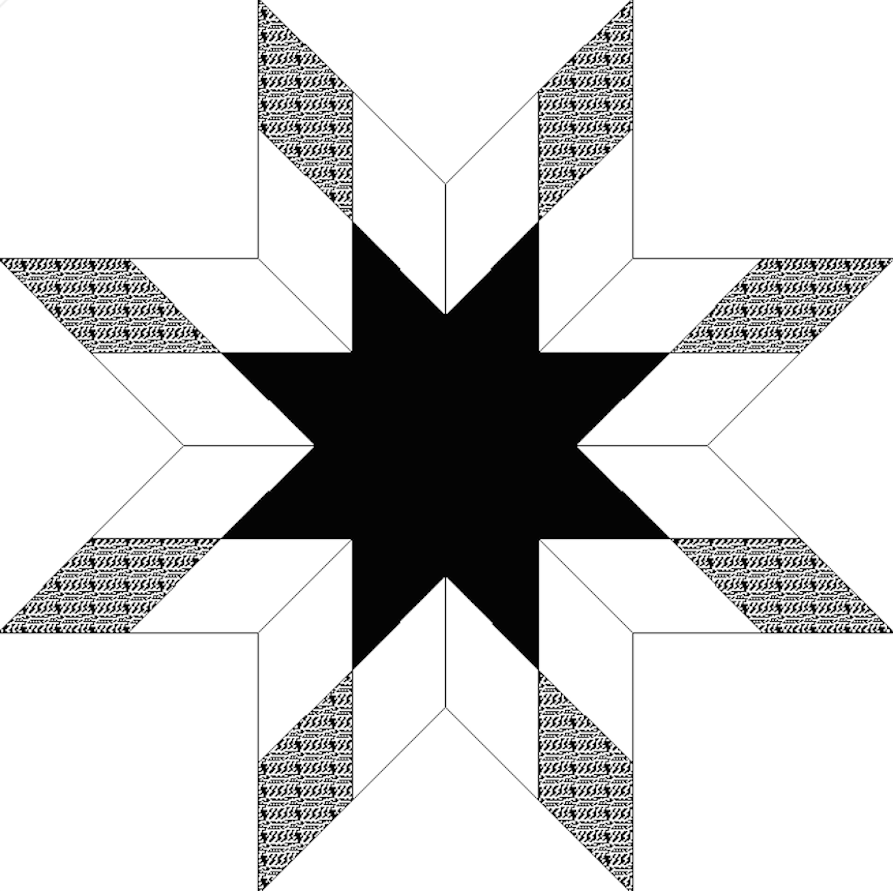
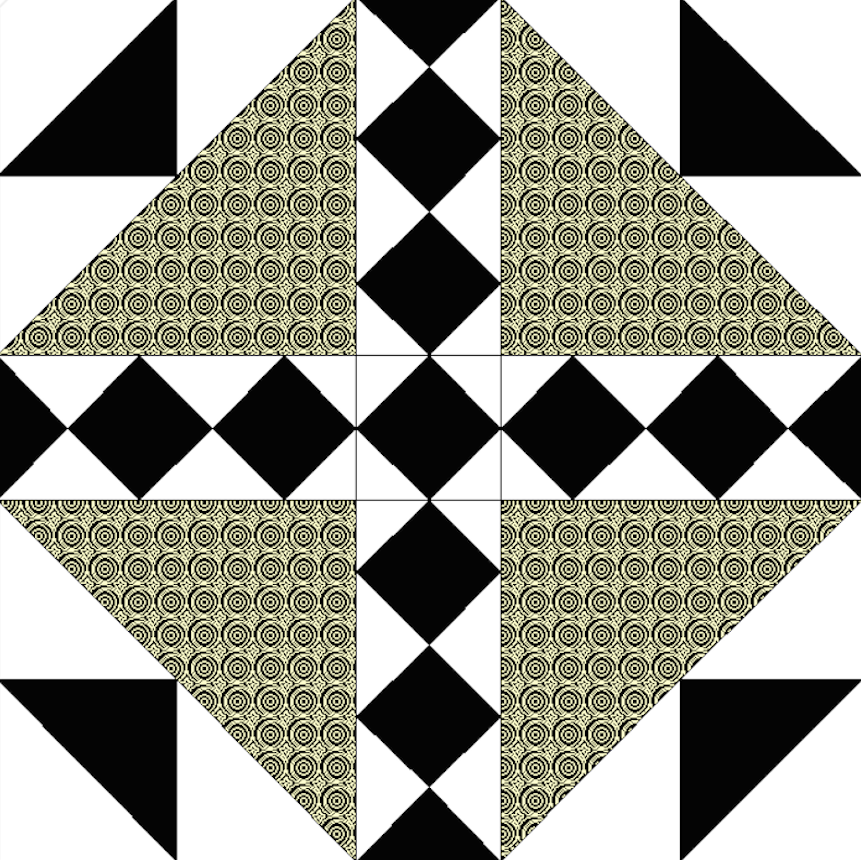
Practice Exercise: Build a block
Use these two blocks to try out your own triad color group. Build the blocks using fabric, construction paper or colored pencils.
Click here to download the Quilt Block Square .pdf file.
Click here to download Quilt Block Star .pdf file.


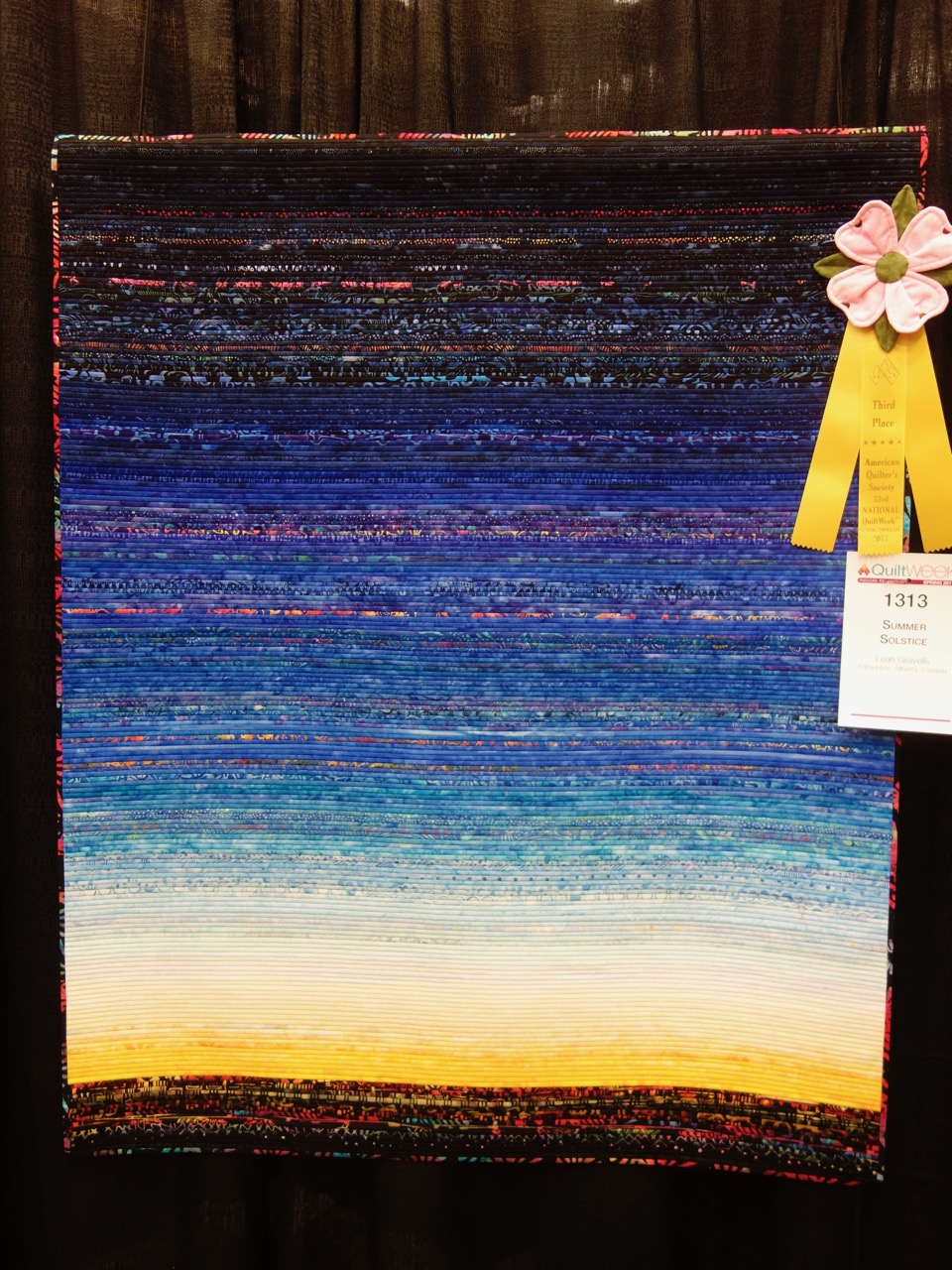
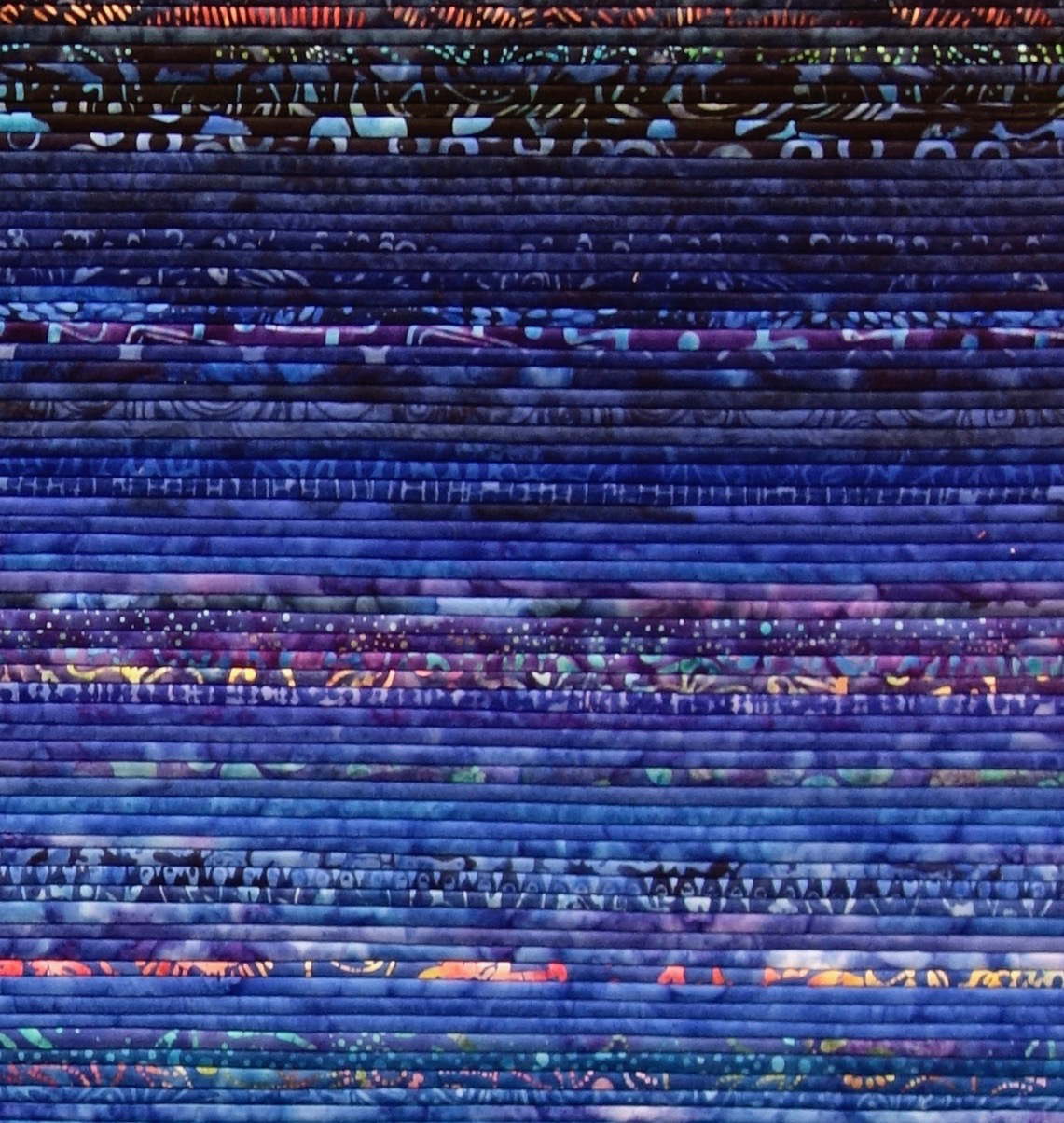


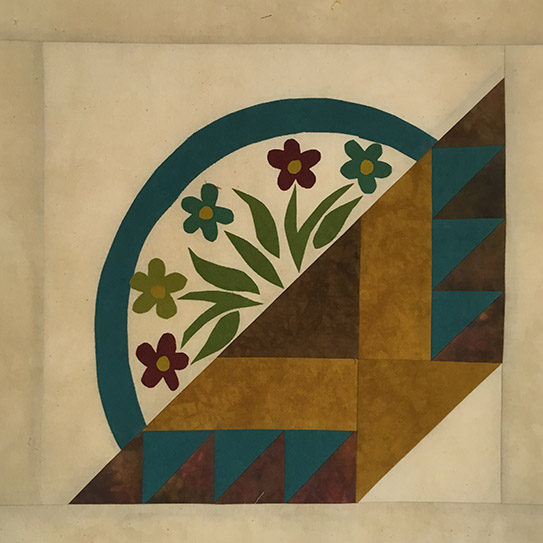

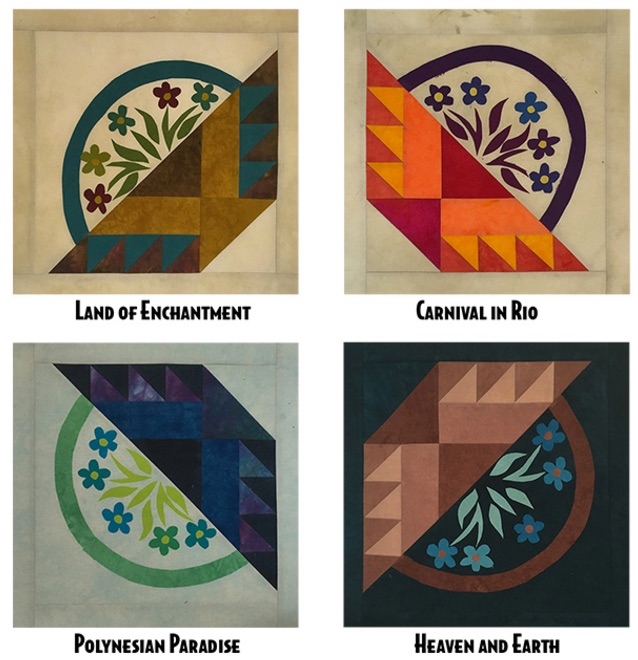
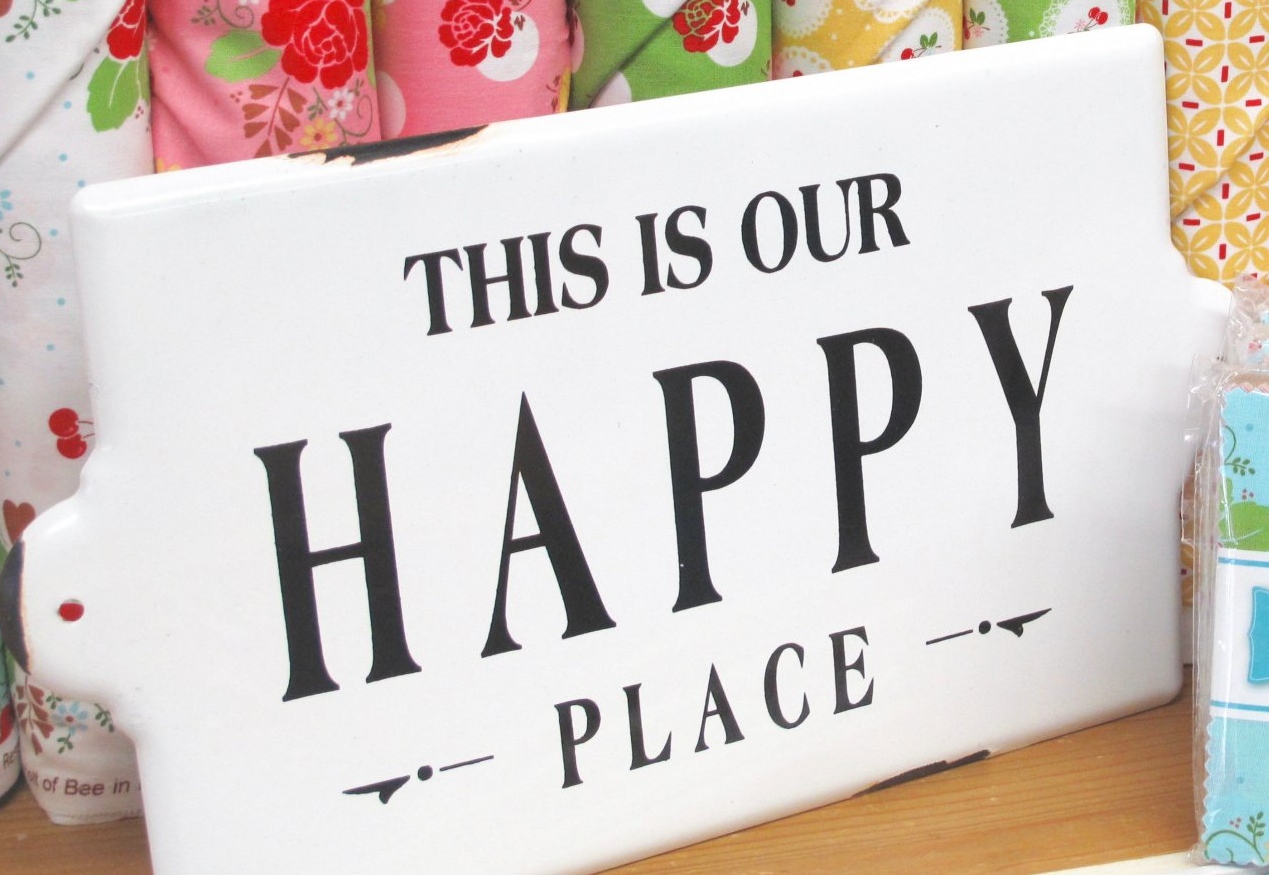
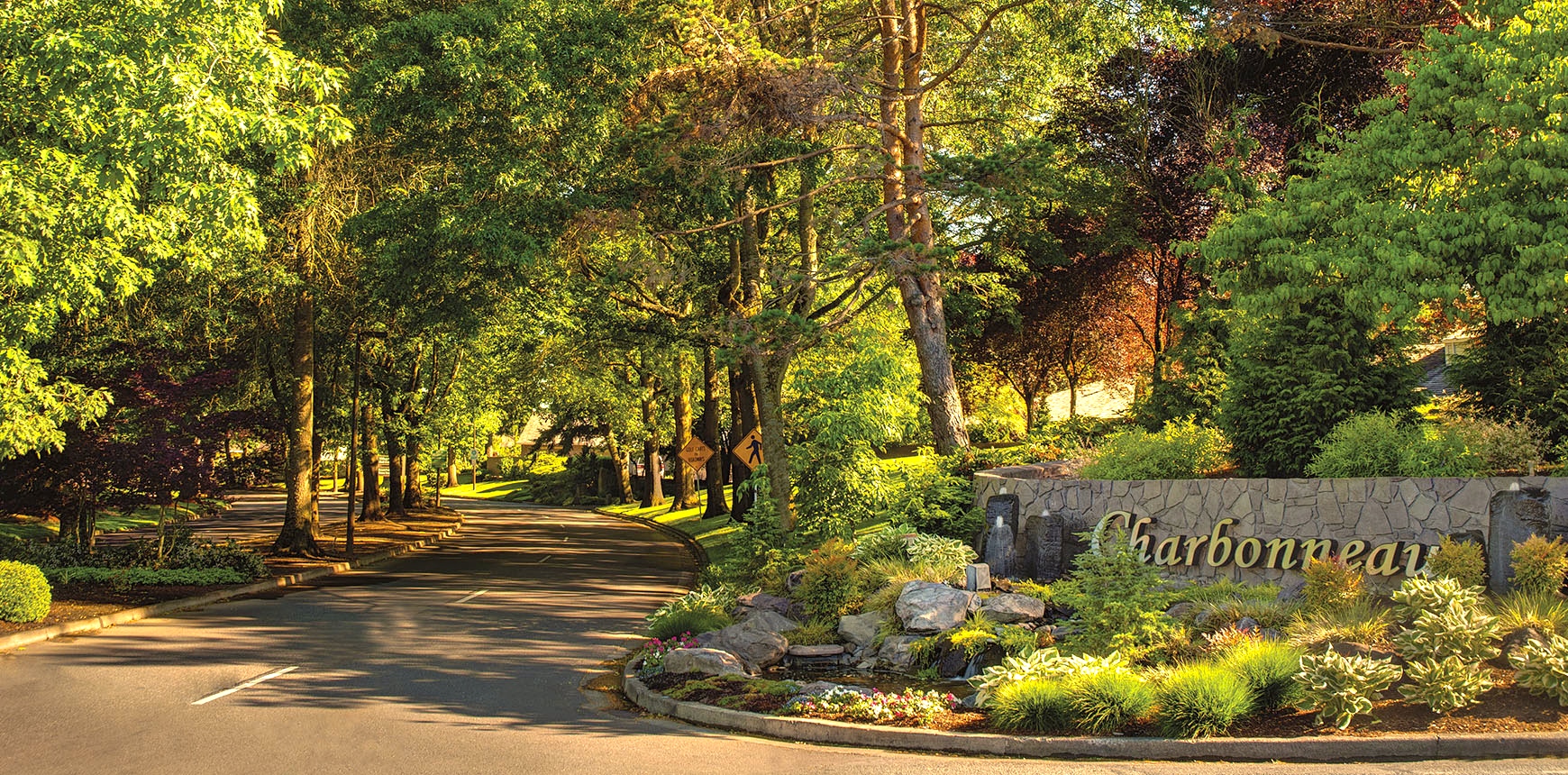
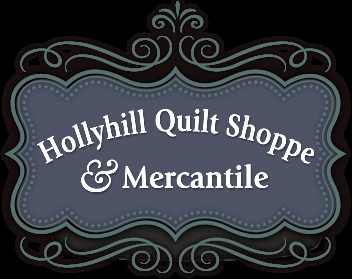
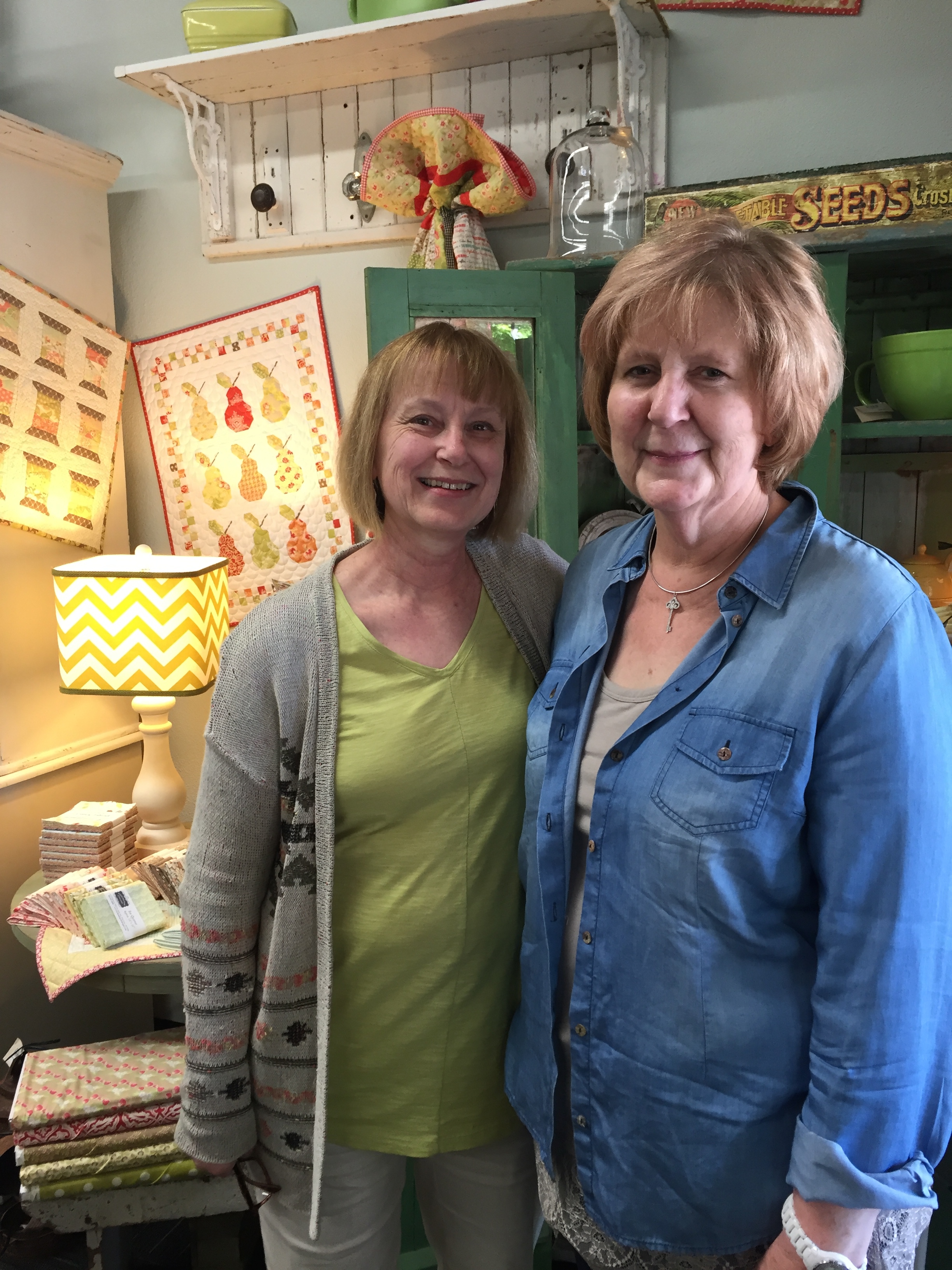
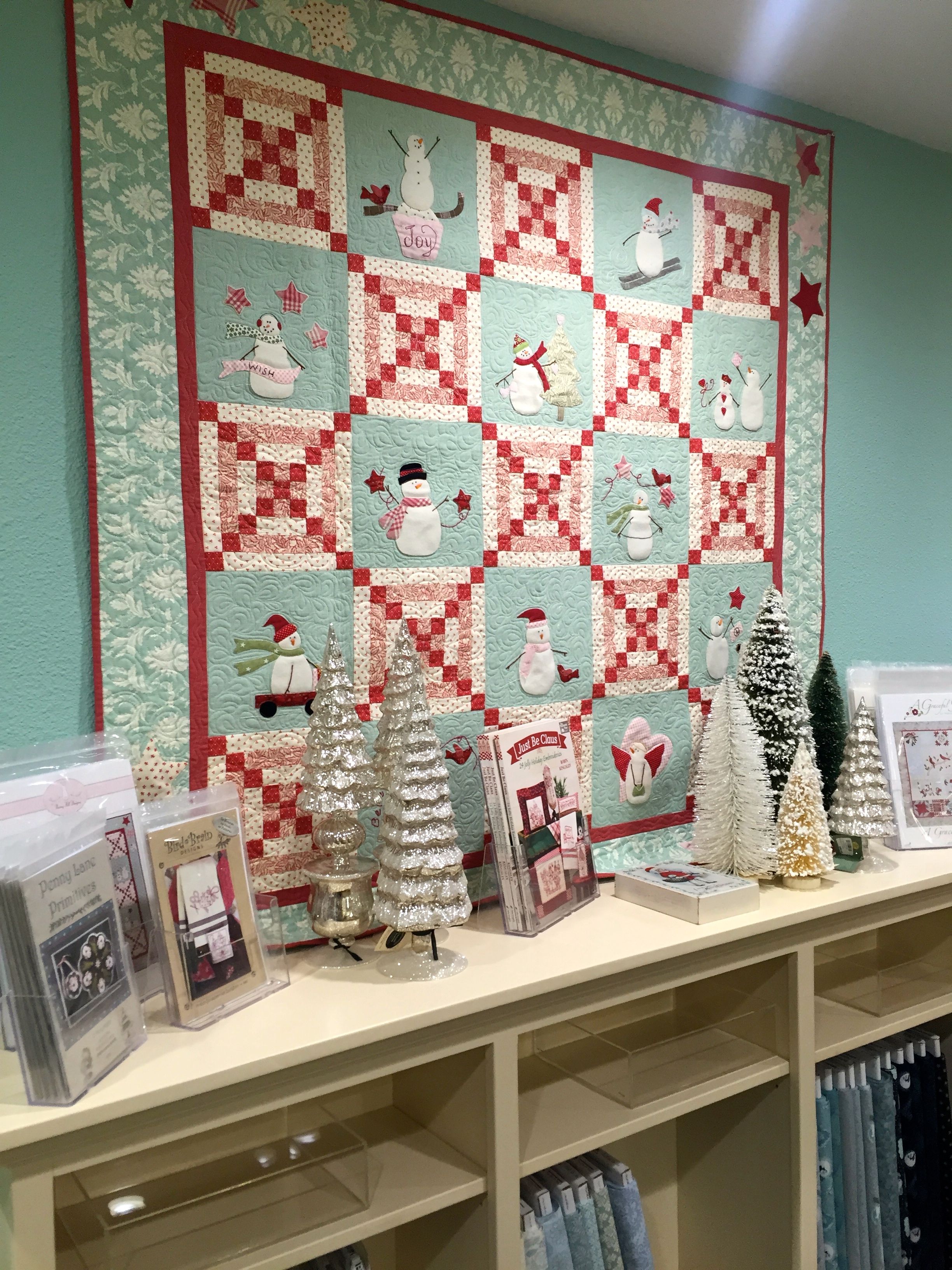

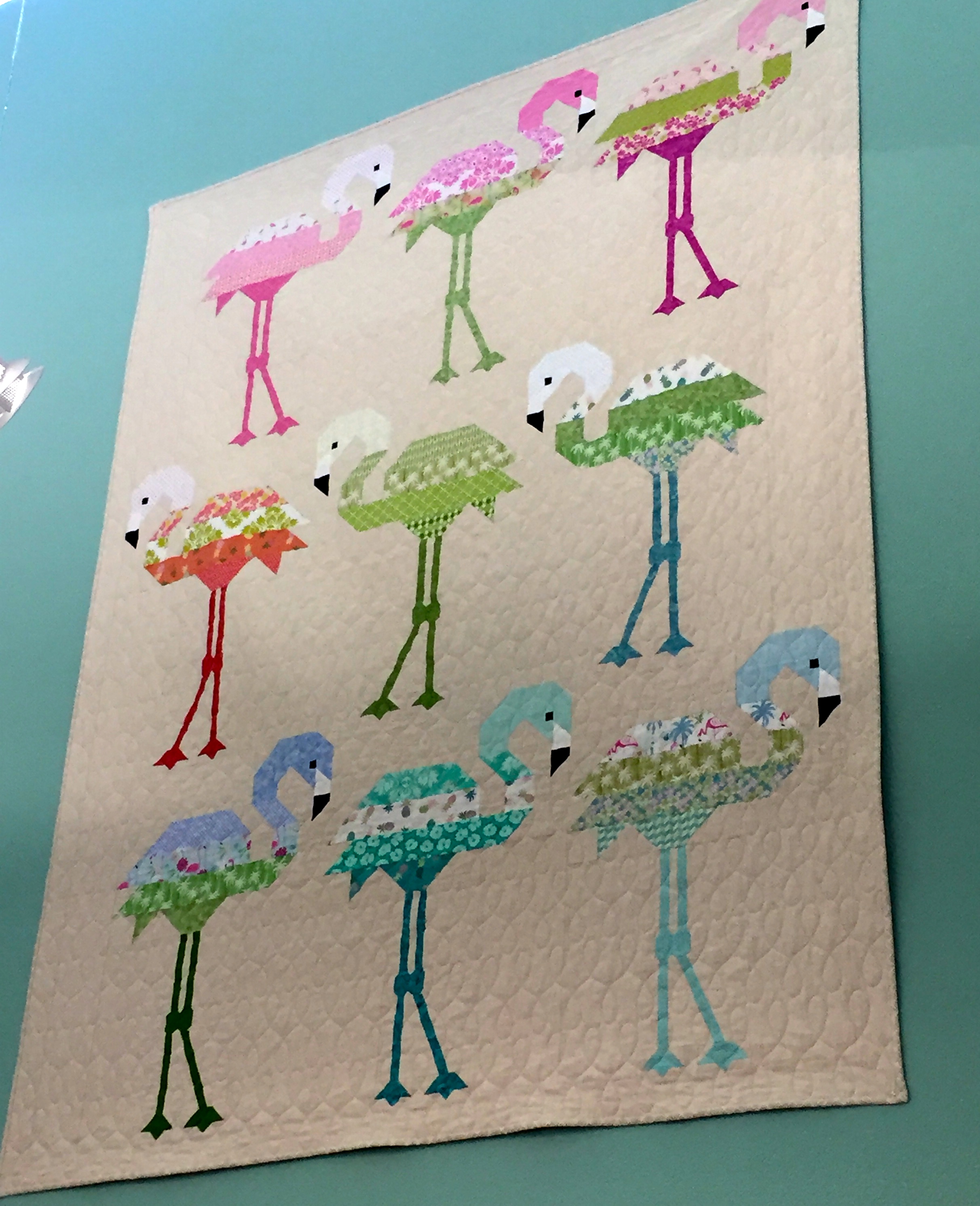
























 A triadic color scheme uses colors that are evenly spaced around the color wheel.
A triadic color scheme uses colors that are evenly spaced around the color wheel.





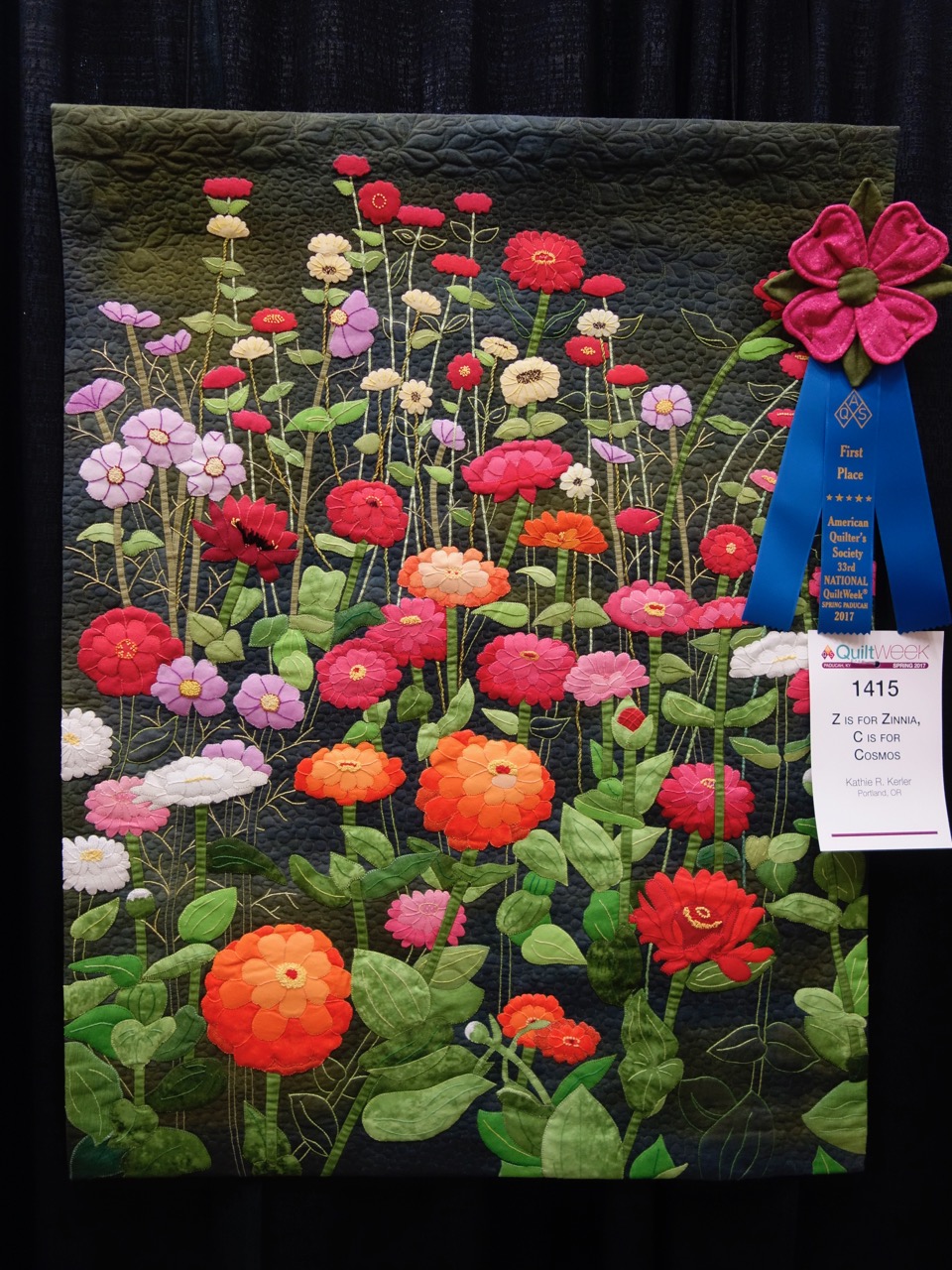
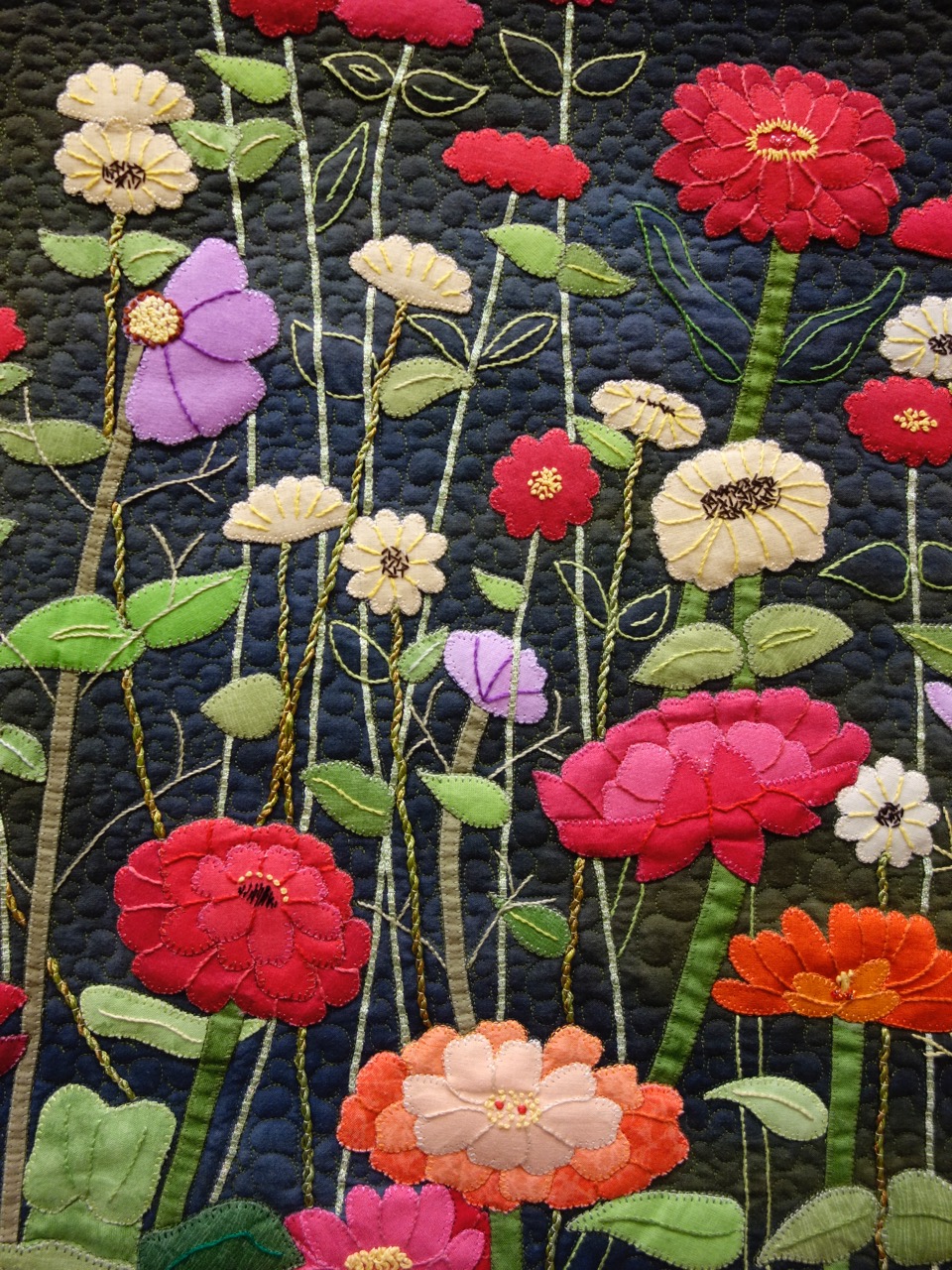
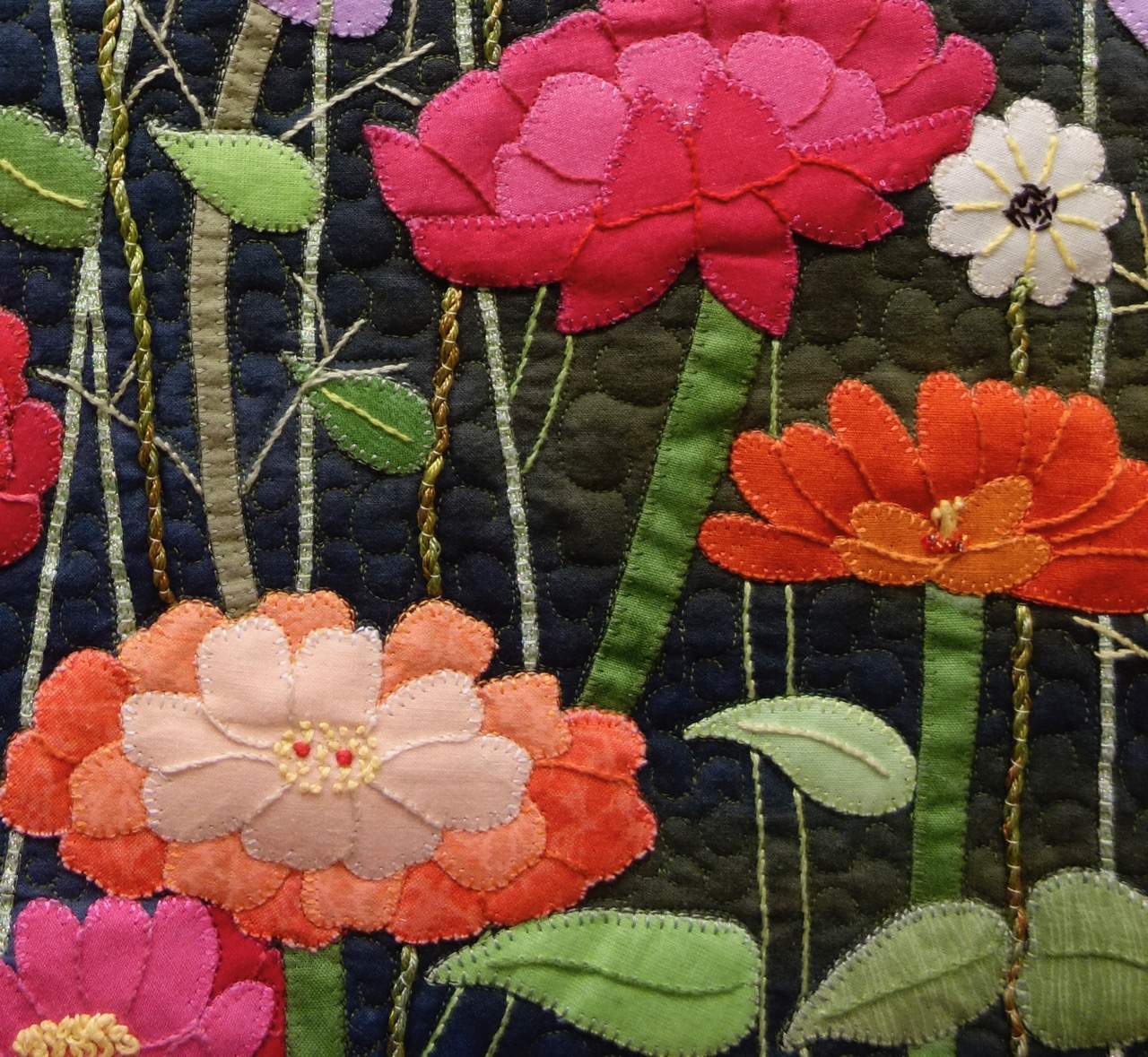

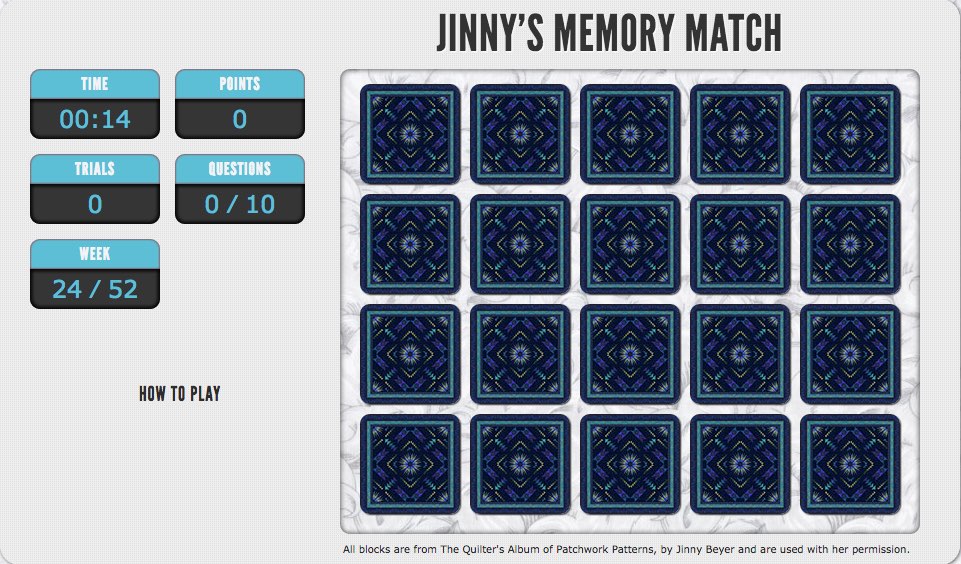

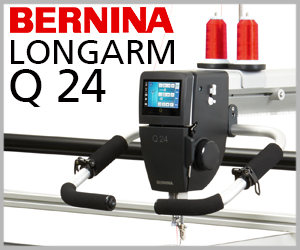
.jpg)
